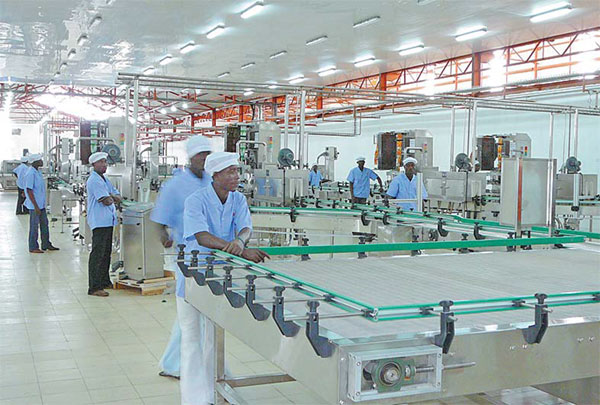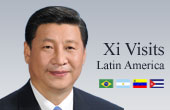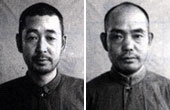Market that is there to be milked
By Li Lianxing (China Daily Africa) Updated: 2014-07-18 09:44
|
Viju Industries (Nigeria)'s milk products are made of formula powder, sugar and juices, and the company says only the best ingredients are used. Provided to China Daily |
Nigerians put their faith in healthy dairy-based drinks with a Chinese touch
When Chinese consider milk products they often look to overseas imports, regarding them as highly trustworthy.
In Nigeria it is to China that many people look to quench their thirst for milk-based products.
Viju Industries (Nigeria) Limited in Lagos has been selling such products in Nigeria since 2004, and now sells more than 1.2 million bottles a day.
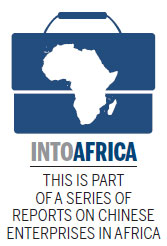
"We use the highest standards to guide our production, and we have brought in the most professional factory leader from China to supervise production," says Hu Zhibao, special assistant to the company.
The milk products Viju makes consist mainly of formula powder, sugar and juices. The company says it insists on using the best ingredients bought locally and internationally.
"For example, we buy branded sugar locally and milk powder from the Netherlands, New Zealand and Malaysia because they cannot be produced in Nigeria."
The machinery and other equipment is also among the best, bought from China, Hu says.
"To ensure smooth production and maximize the life of our machines, we have set up our own power grid with a local gas company to ensure stable power supply. We have a specialized team consisting of both Chinese and local technicians to handle all the mechanical problems."
Before Viju came to Nigeria 10 years ago, no milk beverages were available, Hu says, so government standards for production did not exist.
"Standards are important in this industry, where hygiene, the nutrition that goes into foodstuffs and production need to be closely monitored.
"Even though there were no standards in place, there was no problem in drawing them up because the government believed more producers would come into the market later."
The National Agency for Food and Drugs Administration and Control worked with Viju, together with the Standards Organization of Nigeria, to draft standards by drawing on regulations in the European Union and China, Hu says.
"We made a great contribution to that, and our standards are the highest in Nigeria."
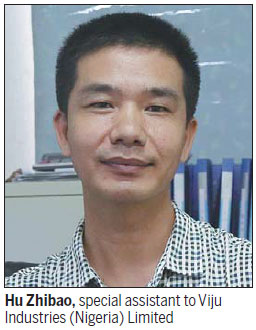
Suleiman Solomon Aliu, marketing manager of Viju, says the company's success in the country has been helped by understanding the market and adjusting the company's strategies to take account of local conditions.
"This is the first of its kind in West Africa, and before 2004 Nigeria only had pure milk products. Over the past 10 years Viju's sales have grown gradually but rapidly, very much mirroring Nigeria's economic growth.
"We have four big competitors here, but Viju stands out because it has led the pack from the very beginning. Our daily sales are now 10 times bigger than what they used to be."
Aliu says one reason for the success of the company's drinks is that their nutritional values are unmatched by any other beverages.
"Unlike many other products in the market that only have sugar and water, our products have powder milk in them, with all the benefits to the body that this implies. That is something Nigerians highly value."
Viju's rise in sales has come on the back of hard work in adjusting and growing its distribution channels and networks.
"We don't sell our products directly to customers but local distributors," Hu says.
"We now have more than 100 main distributors across the country, and we have many sub-distributors as well."
Aliu is in charge of 1,500 local staff and of opening new markets and liaising with distributors.
"Although we only need to deal with distributors, there can be conflicts between them and sub-distributors," Hu says.
"So local staff like Aliu can use their local knowledge and management skills to help Viju better develop its business."
Fourteen years ago, Viju's founder and chairman, Viju Wang Nianyong, was heavily involved in commodities trading. However, he realized that this business was unsustainable in the long term in Nigeria.
He then imported milk products popular in China at the time to test the Nigerian market.
"Initially we gave away yogurt and milk beverages to Nigerians and found they preferred the milk ones," Hu says. "We targeted teenagers and then extended that to include more children."
In the beginning, the company produced just several dozen tons of daily products a day, and that has expanded to 400 tons a day now.
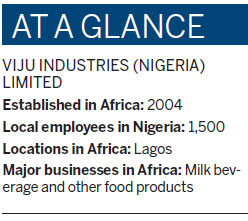
There are seven production lines and an industrial base in Ogun state next to Lagos, the aim being to expand the business to other beverages and food products.
"We aim to go into Ghana, Burkina Faso, Togo and even as far as Morocco, but the transport infrastructure is still quite poor," Aliu says.
"If transport, including road and rail, was in place, costs would fall greatly, and efficiency would improve. We expect to use rail in the next few years."
Apart from the challenges poor transport poses to those wanting to expand their businesses, security is another big concern, he says.
"We simply can't penetrate into the market freely because of worries about security. We haven't fully developed the market in the north of Nigeria, where much of the country's population is concentrated. Even maintaining the sales we already have there is a problem, and that's because of security issues."
Since 2012, Viju's sales in the north have fallen by between 20 percent and 30 percent.
"Distributors in Lagos come to upload products nearly every day, and normally those from the north come once or twice a month, but now the frequency has reduced because of potential dangers during transport."
However, provided the right infrastructure is in place, the future for the company is bright, he says.
lilianxing@chinadaily.com.cn
(China Daily Africa Weekly 07/18/2014 page21)
